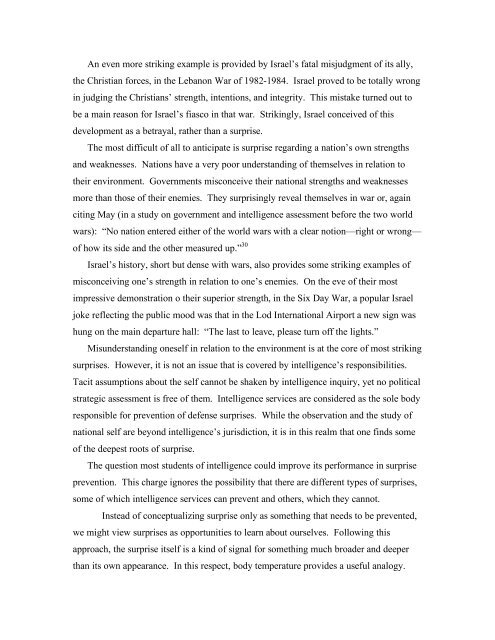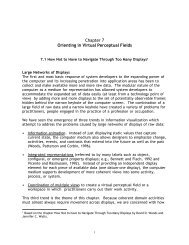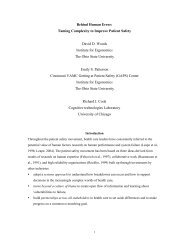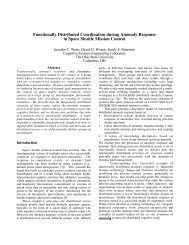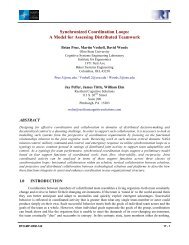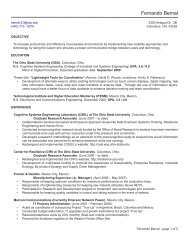Fundamental Surprises Zvi Lanir Decision Research 1201 Oak ...
Fundamental Surprises Zvi Lanir Decision Research 1201 Oak ...
Fundamental Surprises Zvi Lanir Decision Research 1201 Oak ...
- No tags were found...
Create successful ePaper yourself
Turn your PDF publications into a flip-book with our unique Google optimized e-Paper software.
An even more striking example is provided by Israel’s fatal misjudgment of its ally,<br />
the Christian forces, in the Lebanon War of 1982-1984. Israel proved to be totally wrong<br />
in judging the Christians’ strength, intentions, and integrity. This mistake turned out to<br />
be a main reason for Israel’s fiasco in that war. Strikingly, Israel conceived of this<br />
development as a betrayal, rather than a surprise.<br />
The most difficult of all to anticipate is surprise regarding a nation’s own strengths<br />
and weaknesses. Nations have a very poor understanding of themselves in relation to<br />
their environment. Governments misconceive their national strengths and weaknesses<br />
more than those of their enemies. They surprisingly reveal themselves in war or, again<br />
citing May (in a study on government and intelligence assessment before the two world<br />
wars): “No nation entered either of the world wars with a clear notion—right or wrong—<br />
of how its side and the other measured up.” 30<br />
Israel’s history, short but dense with wars, also provides some striking examples of<br />
misconceiving one’s strength in relation to one’s enemies. On the eve of their most<br />
impressive demonstration o their superior strength, in the Six Day War, a popular Israel<br />
joke reflecting the public mood was that in the Lod International Airport a new sign was<br />
hung on the main departure hall: “The last to leave, please turn off the lights.”<br />
Misunderstanding oneself in relation to the environment is at the core of most striking<br />
surprises. However, it is not an issue that is covered by intelligence’s responsibilities.<br />
Tacit assumptions about the self cannot be shaken by intelligence inquiry, yet no political<br />
strategic assessment is free of them. Intelligence services are considered as the sole body<br />
responsible for prevention of defense surprises. While the observation and the study of<br />
national self are beyond intelligence’s jurisdiction, it is in this realm that one finds some<br />
of the deepest roots of surprise.<br />
The question most students of intelligence could improve its performance in surprise<br />
prevention. This charge ignores the possibility that there are different types of surprises,<br />
some of which intelligence services can prevent and others, which they cannot.<br />
Instead of conceptualizing surprise only as something that needs to be prevented,<br />
we might view surprises as opportunities to learn about ourselves. Following this<br />
approach, the surprise itself is a kind of signal for something much broader and deeper<br />
than its own appearance. In this respect, body temperature provides a useful analogy.


